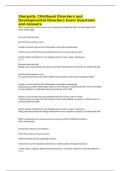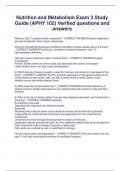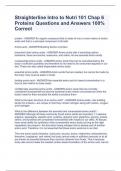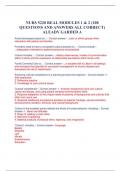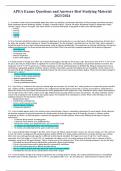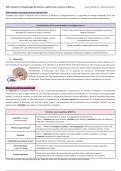Tentamen (uitwerkingen)
Sherpath: Childhood Disorders and Developmental Disorders Exam Questions and Answers
- Vak
- Instelling
Sherpath: Childhood Disorders and Developmental Disorders Exam Questions and Answers Which assessments can the nurse use to evaluate the intellectual skills of a school-aged child? Select all that apply. Play catch with the child. Give the child a puzzle to solve. Provide a scenario an...
[Meer zien]
